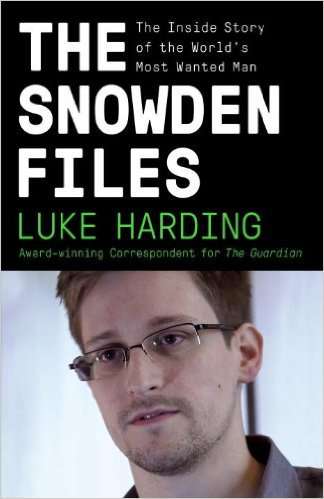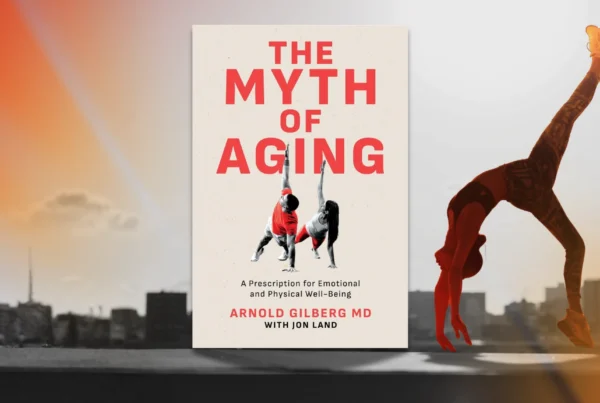Who would have thought that Oliver Stone would play it safe? I certainly wouldn’t think the JFK and Platoon helmsman would decide to pull back when exploring one of the most important stories of the early 21st century regarding our privacy. But I’m here to tell you, Stone played it too close to the vest.
 Snowden stars the multifaceted Joseph Gordon-Levitt as the titular Edward Snowden, who at his personal expense exposed how the National Security Agency is able to spy on anyone with a cell phone or internet connection. Many historians think this revelation was more impactful than Daniel Ellsburg’s ‘Pentagon Papers’ revealing the impending failure of the Vietnam War. The movie is based on two books, The Snowden Files (Vintage, 2014) by Luke Harding and The Time of the Octopus (Glagoslav, 2016) by Anatoly Kucherena, and if you’re looking for a more in-depth look at how Snowden took on the U.S. government, skip the movie and buy the books. They provide more than any movie could pack in even with Oliver Stone’s proven ability to condense history.
Snowden stars the multifaceted Joseph Gordon-Levitt as the titular Edward Snowden, who at his personal expense exposed how the National Security Agency is able to spy on anyone with a cell phone or internet connection. Many historians think this revelation was more impactful than Daniel Ellsburg’s ‘Pentagon Papers’ revealing the impending failure of the Vietnam War. The movie is based on two books, The Snowden Files (Vintage, 2014) by Luke Harding and The Time of the Octopus (Glagoslav, 2016) by Anatoly Kucherena, and if you’re looking for a more in-depth look at how Snowden took on the U.S. government, skip the movie and buy the books. They provide more than any movie could pack in even with Oliver Stone’s proven ability to condense history.
 Gordon-Levitt does a great job with what he is given. After Snowden and his loveable creep in Don Jon, I’m sold on his ability to carry a movie. He adds depth to the man and Stone compliments his star by allowing him to show audiences Edward Snowden the person, his flaws and his idealism. While the heartfelt moments are few and far between, Gordon-Levitt makes the most of his opportunity. We see a lost and dejected man who only wanted to serve his country, especially after he endures a traumatic leg injury, forcing him out of combat service. Stone’s Snowden is a man stifled from making a difference, lost in finding his own path.
Gordon-Levitt does a great job with what he is given. After Snowden and his loveable creep in Don Jon, I’m sold on his ability to carry a movie. He adds depth to the man and Stone compliments his star by allowing him to show audiences Edward Snowden the person, his flaws and his idealism. While the heartfelt moments are few and far between, Gordon-Levitt makes the most of his opportunity. We see a lost and dejected man who only wanted to serve his country, especially after he endures a traumatic leg injury, forcing him out of combat service. Stone’s Snowden is a man stifled from making a difference, lost in finding his own path.
The cast is top-notch with Tom Wilkinson bringing his support as journalist contact, Ewan MacAskill and Shailene Woodley, who looks relieved to not be in another Divergent installment, as Snowden’s girlfriend, Lindsay Mills. Even the mercurial and occasionally brilliant Nicolas Cage does a fair job as a former intelligence agent. The narrative itself brings up issues that are topical while also asking the ever-brooding question of how far a government should go to keep us “safe.” The actors are ready and willing and with a dynamic director/writer in Oliver Stone, on the surface this lines up for an intriguing historiographical film on a hotly debated topic. But, like many great designated hitters given that perfect dipping fastball, sometimes they just whiff it.
Stone has never been one to make a boring movie. With JFK the film alleged Lyndon B. Johnson was involved in the assassination of President John F. Kennedy with absolutely no facts to back them up! It boasted a ‘screw you, it’s a good movie’ mentality that earned the film several Academy Award nominations despite its controversy. Even as early as his Scarface script, Stone never shied away from the disturbing and visceral to get a deeper point across, ample in blood and gore. His biopic on George W. Bush was a noble attempt but it made the 43rd president seem too much like a happenstance oaf. And after his recent action-thriller Savages, I was forced to question if Stone had lost his edge. With Savages we were presented with a poorly conceived justification; telling the world ‘See guys, I haven’t lost a step’ hammering away violence and pulp but sacrificing any semblance of a message. It was a bloody, mildly entertaining film that as the credits rolled I had to think, ‘What was the point of that?’ So Snowden was a perfect opportunity for a return to form and he whiffed it.
Famous for playing with the truth to better fit the kind of movie he wants (even by fabricating entire events), the politically-charged Stone had a chance to make an explosive, controversial film with actual facts. While the sequences that explained how he stole the data is thrilling and forms a heavy film of sweat on your brow, too often is the film self-aware. Too often when Gordon-Levitt and Wilkinson are discussing the severity of the NSA’s actions, do these sequences drone on like a documentary. I have to say, it was almost to the point of patronizing the audience. The pacing felt too much like a special on the History Channel, where I half-expected the camera to cut away to the real Snowden and he’d take the narration from there. Without delving into the emotional and moral complexity outside of saying ‘this is bad,’ Stone trudges the narrative along competently although he leaves disappointment in his wake. Maybe I’ve come to expect too much from Stone but I scratch my head, questioning why he wouldn’t allow some of his devil-may-care attitude to shine through when he has actual facts to justify his politicisms this time around.





